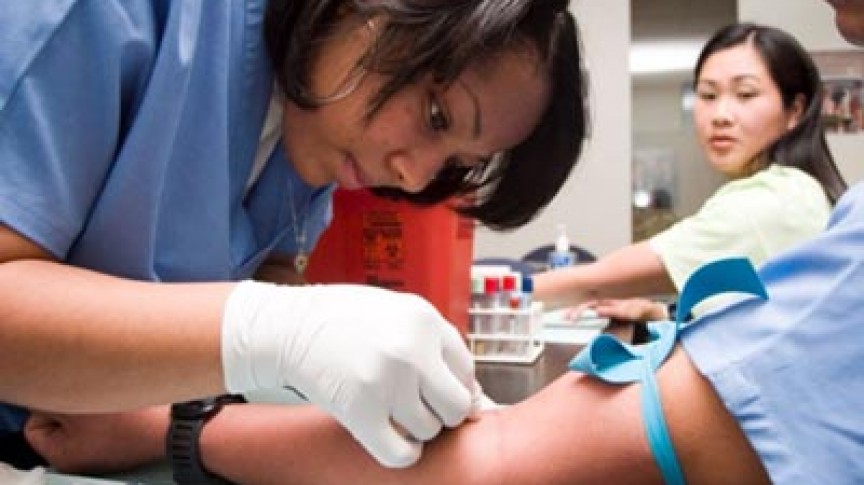**Title: Comprehensive Guide to Phlebotomy Training**
**Introduction:**
Phlebotomy is a crucial aspect of healthcare, involving the collection of blood samples for diagnostic testing, blood transfusions, research, or donations. Phlebotomists are trained professionals responsible for performing venipuncture procedures safely and efficiently. If you are interested in pursuing a career in phlebotomy, it is essential to undergo proper training to acquire the necessary skills and knowledge. In this article, we will explore the process of phlebotomy training, its benefits, and practical tips for success in this field.
**What is Phlebotomy Training?**
Phlebotomy training is a specialized program designed to equip individuals with the expertise required to become a certified phlebotomist. Training typically includes both theoretical knowledge and hands-on experience in drawing blood, handling specimens, maintaining equipment, and ensuring patient safety. Phlebotomy courses cover topics such as anatomy, physiology, infection control, medical terminology, and venipuncture techniques.
**Benefits of Phlebotomy Training:**
1. **Career Opportunities:** Completing phlebotomy training opens up various career opportunities in healthcare settings such as hospitals, clinics, laboratories, blood banks, and physician’s offices.
2. **Job Security:** The demand for phlebotomists is expected to grow as the healthcare industry continues to expand, providing job security and stability.
3. **Competitive Salary:** Certified phlebotomists receive competitive salaries and may have opportunities for advancement in their career.
4. **Personal Fulfillment:** Being able to help patients by collecting crucial blood samples for diagnosis or treatment can be rewarding and fulfilling.
**Practical Tips for Phlebotomy Training:**
1. **Find a Accredited Program:** Look for phlebotomy training programs that are accredited by reputable organizations such as the National Accrediting Agency for Clinical Laboratory Sciences (NAACLS).
2. **Practice Veinpuncture Techniques:** Practice venipuncture techniques on simulation arms or volunteer opportunities to improve your skills and confidence.
3. **Develop Communication Skills:** Building strong communication skills is essential for interacting with patients, explaining procedures, and ensuring their comfort.
4. **Stay Updated:** Stay updated on the latest industry trends, guidelines, and technologies through continuing education and professional development opportunities.
**Case Study:**
Sarah, a recent graduate of a phlebotomy training program, secured a job at a local hospital after completing her externship. She credits her success to the comprehensive training she received, which prepared her for real-world challenges in phlebotomy practice.
**Firsthand Experience:**
“I found phlebotomy training to be a fulfilling experience that enabled me to enter the healthcare field with confidence. The hands-on practice and supportive instructors made all the difference in my journey to becoming a certified phlebotomist.” – John, Certified Phlebotomist
**Conclusion:**
Phlebotomy training is the first step towards a rewarding career in healthcare, offering numerous benefits and opportunities for personal and professional growth. By acquiring the necessary skills and knowledge through proper training, you can embark on a fulfilling career as a certified phlebotomist. Remember to stay committed, practice diligently, and continuously seek opportunities for learning and advancement in this dynamic field.
phlebotomy training is a valuable investment in your future, providing you with the skills and expertise needed to excel in this essential healthcare profession. By following the tips outlined in this guide and sharing the experiences of successful phlebotomists, you can embark on a fulfilling career path that makes a difference in the lives of patients every day.
